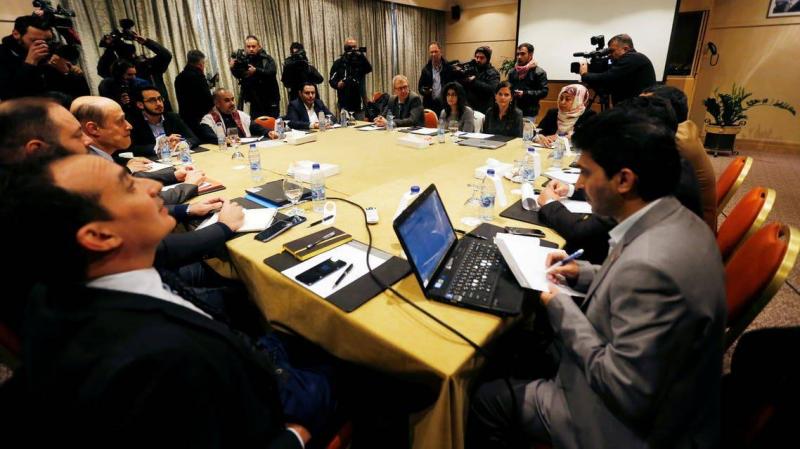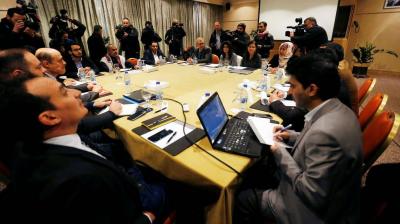The head of the Yemeni government delegation, Hadi Haij, confirmed that the Ansar Allah group is accused of undermining the negotiations that took place between the two parties regarding the prisoner exchange issue.
In a statement reported by Sputnik, Haij emphasized via his Twitter account that the Houthi delegation insisted on thwarting this round of consultations, especially after the removal of their designation as a terrorist organization (referring to the U.S. decision to revoke this designation), despite the government delegation having made many concessions as this is a humanitarian issue. Haij pointed out that the Houthis were the ones who rejected adherence to what was agreed upon in Oman 3 (referring to the agreement signed last February) and attempted to circumvent it, insisting on creating obstacles to derail the process and continually demanding unknown names.
The head of the Yemeni government delegation noted that the Houthis refused to release and exchange journalists (Imran, Al-Walidi, Hamid, Al-Mansouri) as well as civilian detainees such as academics, the elderly, and the sick, despite efforts made to pressure them to move forward without success, confirming that the round was thwarted with no response to all calls for cooperation. Haij concluded that the Houthis aimed to sidestep whatever had been previously agreed and signed at all costs.
Earlier today, the United Nations announced that the round of negotiations between the legitimate government and the Ansar Allah group, which took place in the Jordanian capital Amman for almost a month, was unsuccessful. A statement from the office of the UN Secretary-General's Special Envoy to Yemen, Martin Griffiths, indicated that "the two parties discussed strategies and possibilities for fulfilling their commitments under the Stockholm agreement. However, they did not agree on releases during this round of talks," reaffirming "both parties' commitment to continuing discussions on the criteria for an expanded release process in the future."
The statement quoted the UN envoy as saying, "I am disappointed that this round of talks did not reach the level we saw in Switzerland last September, which resulted in the release of 1,056 detainees." Griffiths urged both parties to "continue their discussions and consultations to finalize the implementation of what was agreed upon and to expand arrangements for the release of more detainees soon." He reiterated the call for "the unconditional release of all sick, wounded, elderly individuals, children, and civilians held, including women and journalists."
The fifth meeting of the supervisory committee concerned with monitoring the implementation of the prisoner exchange agreement between the legitimate government and the Houthi group, sponsored by the United Nations, began in Jordan on January 24. This pertains to the second part of the Oman agreement signed between the two parties on February 16.
The second part of the Oman agreement includes the release of 300 prisoners from both sides, with 200 prisoners from "Ansar Allah" in exchange for the group releasing 100 from the legitimate government, in addition to Brigadier General Nasser Mansour Hadi (brother of the Yemeni president), who was captured alongside former Defense Minister Mahmoud Al-Sobaihi in March 2015 in Lahij governorate, southern Yemen.
During the negotiations, both sides exchanged accusations of seeking to undermine the proceedings, with the head of the "Ansar Allah" delegation, Abdul Qadir Al-Murtada, accusing the government delegation of "attempting to bypass what was previously agreed upon by imposing new conditions outside of the Amman agreement," while the government delegation stated that the group "demands prisoners who no longer exist to complicate the situation."
On October 16, the International Committee of the Red Cross in Yemen announced the exchange of 1,056 prisoners and detainees, including 15 Saudis and 4 Sudanese from the Arab Coalition, under the Switzerland agreement reached by both parties during the fourth meeting of the supervisory committee concerning the implementation of the prisoner exchange agreement, held in Montreux, Switzerland, in late September.
The legitimate government and the Ansar Allah group exchanged lists of around 15,000 prisoners between them in December 2018 during the Stockholm negotiating round, as part of a mechanism to activate the prisoner exchange agreement.




